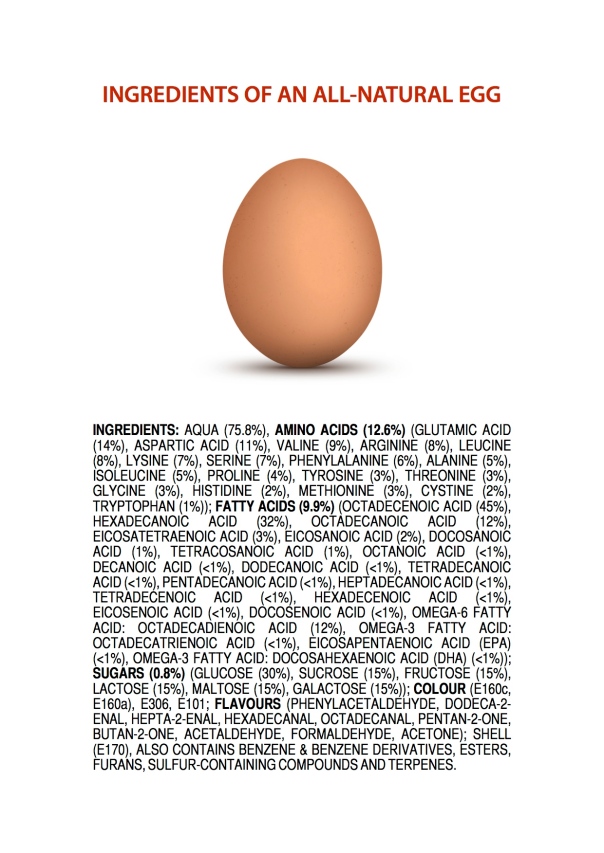But if you are an anti-science activist, you may not understand the distinction between what is in your food and what it simply is - and there we part company. A genetic modification (GMO) is your food, for example, it is no different than any other food from a health perspective. Cataloging the numerous ways agriculture has genetically engineered food for as long as food has been grown is outside the scope of this piece, but GMOs don't bother me and that science shouldn't bother you either. (1)
Pesticides do bother me, and you have a reason to be concerned about those. If you think you don't need to wash organic food before you eat it, I think you need a sanity test. An organic pesticide is not superior to a synthetic one nor is eating animal feces on vegetables any smarter than eating man-made fertilizer.
That is where anti-science activists miss the mark. Caring about one thing we know is harmless while pretending something we know is harmful is not, if it carries an organic label, is a real mistake for their credibility. I care about food but putting a label on every food that has a GMO (yet exempting mutagenesis, which is all the rage in Europe now, precisely because it is genetic optimization, but not the legally vilified kind) and not putting a label on pesticide-laden organic food would be silly.(2)
The Canadian Food Inspection Agency did a study and found that organic foods contain high levels of pestcides. Of course, it took the Canadian equivalent of a Freedom of Information Act request to get the study, for no reason anyone can discern the Canadian government opted not to publish results showing that almost 46% of organic food contained pesticides - and it wasn't just imported organic food, 43% of Canadian organic farmers are using pesticides and leaving enough behind they are easily detected.

Should you be worried about pesticides on organic food? You betcha. Image link:jessandeeonline
Yet they never bothered to mention it to the public. After the study results were disclosed, by journalists, not by the government, the agency rationalized that the pesticides were not high enough to cause worry.
In other words, even when organic food levels were higher than the conventional food we are constantly told contains too many pesticides by organic marketing groups, they weren't high enough to warrant concern.
Given the same levels of pesticides, tell us again why organic products are so much more expensive? If they have the same pesticides, isn't it unethical to be charging organic shoppers, sold the mythology that organic food is pesticide-free, all that extra money in return for an intellectual placebo? (3)
Obviously some organic food has fewer pesticides - if I grow food in my backyard it can have no pesticides at all, if I want. And if that makes you feel like spending more money, okay. But consumers in Canada are spending more and getting nothing, it's as fake as a lot of olive oil and honey. But in the case of Canada, where they import 80% of their organic food, this study being buried looks like Big Organic playing politics and getting a secret deal from an inspection agency, because the report was done over a year ago.
The reason may be because food that actually has to meet the standards that organic companies promote in their marketing would not just be the 2-3X more expensive that it is now, it would be even more expensive than that. It would not be even close to viable.
The US is in the same difficult position. The $29 billion organic food industry wants to promote every article they can showing the dangers of pesticides, but they are never going to advertise that their products have just as many pesticides that are just as harmful as conventional food, they are simply not synthetic. Literate people know that all of the "holistic" claims in the world will not make organic pyrethrin, rotenone, ricin and strychnine healthy to ingest in quantity. What science, and the US FDA, knows is that no pesticides are going to be consumed in high quantities unless you are really, really trying and labels won't help. If we want to use labels, your whole Thanksgiving dinner contained chemicals known to cause cancer in rats - even if it was entirely organic. And look at what an organic egg would look like if it had to have the labels man-made products have:

Credit and link: James Kennedy
We can't have no pesticides, the world would starve, and the good news for everyone is that pesticide use has dropped overall. I have written numerous times about the cutting-edge dematerialization that has been done by agriculture over the last few decades - and, whether you are afraid of science or not, GMOs are a part of that - while Steve Savage did an article specifically about the smarter use of pesticides overall.
In past attempts to create a competitive advantage using laws, organic food has been careful to exempt itself and consumers they don't want to enrage, that is why the California Proposition 37 regarding GMOs didn't include alcohol, organic food and restaurants. When it comes to pesticides, they won't be able to hide. While very few people care about GMOs are in their food, they do care about pesticides - and they should.
That means that if organic food ever gets the label laws they think they want, their products will have the same warning label everything else would have.
NOTES:
(1) The microbiome of you today and someone from a hundred years ago is not even close, only wild animals have a microbiome similar to what even recent ancestors had, so pretending agricultural was somehow healthier 15 years ago, before GMOs but with a lot more pesticides, seems a little silly.
(2) In California it would be just as pointless as seeing those carcinogen warning labels in every building you walk into. All those "cancer causing chemicals" warning labels did was make the lawyer behind it rich filing nuisance lawsuits, so it's no surprise he also wrote the California proposition that tried to put warning labels on GMOs.
(3) US organic marketing peddles mythology too. Look at the dozens and dozens of synthetic ingredients they have gotten the FDA to exempt from organic food, in order to make it more economically viable.





Comments